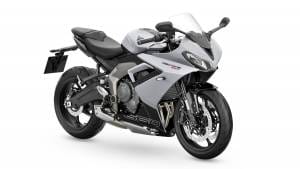2014 Triumph Daytona 675 vs 2024 Kawasaki ZX6R - A Decade of Evolution in Supersport Motorcycles
In today's market for middleweight supersport motorcycles, often categorised as the 600s, the options appear rather limited. If you're seeking such a machine, your journey inevitably leads to a Kawasaki dealership for the renowned ZX6R - which has now returned in a new avatar. However, the tide may shift should Honda introduce the enticing CBR600RR to our shores.
Alternatively, for those inclined towards a mellower ride, options like the CBR650R or the Ninja 650 offer a less aggressive yet still thrilling experience. Looking ahead, the promise of Yamaha's R7 or Triumph's Daytona 660 looms on the horizon.
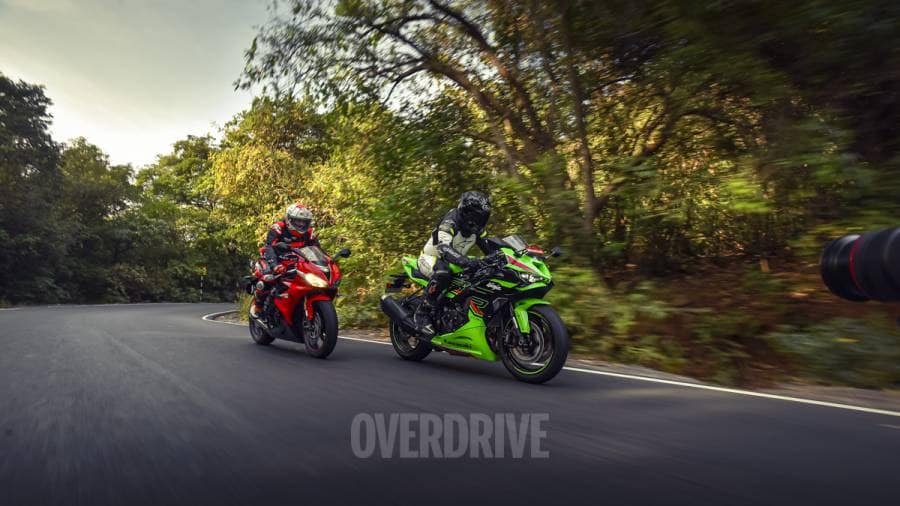
Interestingly, this scenario echoes the situation a decade ago when the Daytona 675 stood as the sole contender in India's middleweight supersport segment. This begs the question: has the segment truly evolved over the past ten years? Let me present my perspective.
Power and Performance
With changing market demands, technological advancements, and regulatory pressures, manufacturers have often been forced to adapt and evolve their offerings. These two supersport motorcycles share a unique trait: they defy tradition by featuring unconventional engine designs, departing from the typical 599cc inline-four configuration.
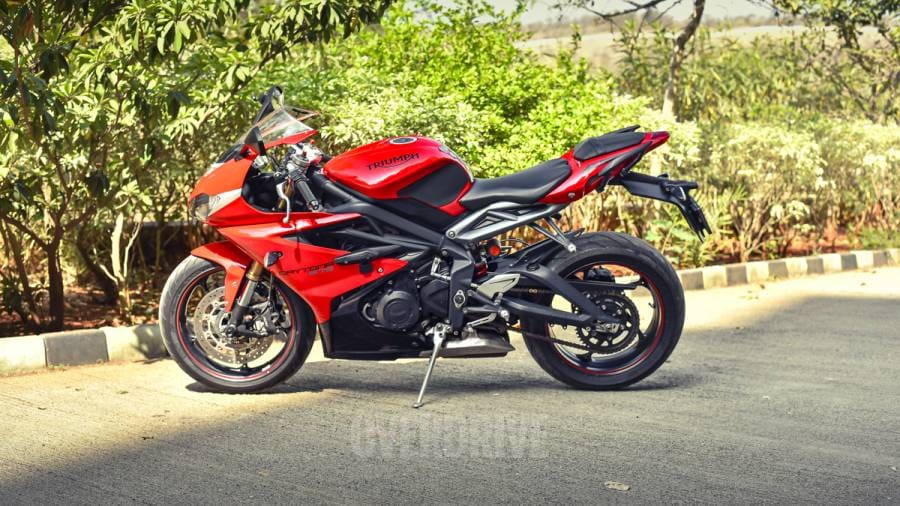
The Triumph Daytona 675 boasts a potent 675cc three-cylinder engine, delivering 126 horsepower. This powerplant, while not as outright powerful as some of its competitors, offers a unique blend of torque-rich performance and linear power delivery. Triumph's engineering prowess is evident in the Daytona 675's short-stroke design, top-notch components, and refined tuning, resulting in exhilarating performance on both the street and the track.
The engine's ability to rev freely and eagerly rewards riders with a unique riding experience, making it a favourite among enthusiasts who want a dynamic edge. The engine is so good that it has laid the foundation for everything from the entry-spec 660cc motorcycles from Triumph, all the way up to the 765cc engines in the Street Triple RS and the the Moto 2 machines. In fact, the Street Triple RS has turned out to be so potent on the track and as an all-rounder, that it could be held responsible for the death of the track-bred Daytona (and the birth of its sport-tourer 660cc namesake).
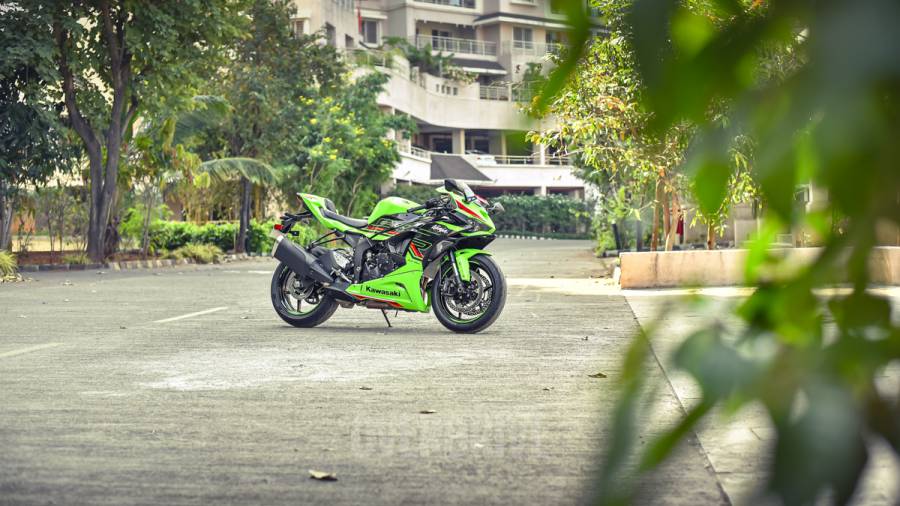
In contrast to Triumph's triple, the 2024 Kawasaki ZX6R inherits the legacy of its predecessors, featuring a 636cc inline-four powerplant. While this engine configuration has been a staple of the ZX6R lineup for years, the 2024 iteration fails to deliver significant advancements in power output or technological innovation - boasting a 129PS, which is humble increment for a gap of ten years. In fact, the 2024 model sacrifices a horsepower or two due to the implementation of new camshafts featuring a lower lift profile and shorter duration compared to its predecessor.
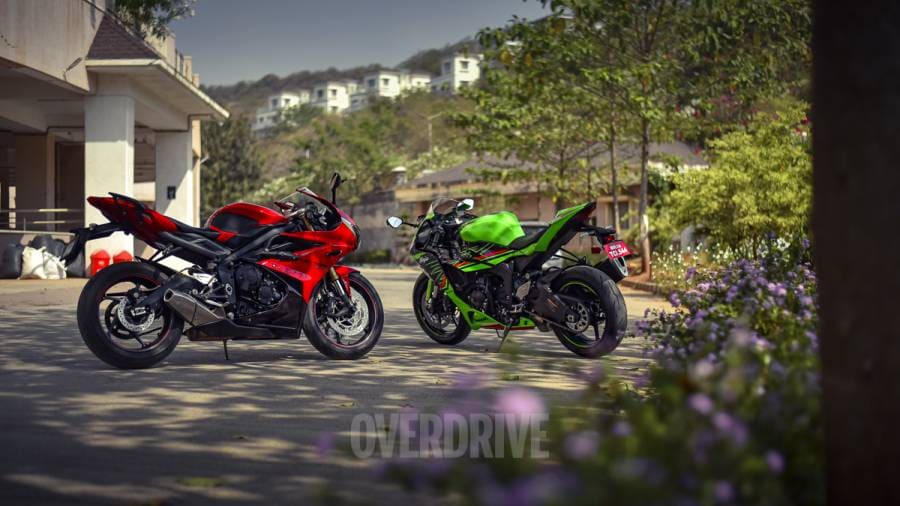
However, this trade-off results in reduced exhaust emissions, enabling compliance with stricter regulatory standards. With no option for a larger engine displacement, the ZX6R relies on innovative solutions to meet emissions requirements. This includes a revised exhaust layout featuring a larger exhaust pre-chamber and positioning the O2 sensor closer to the exhaust ports, facilitating more efficient readings and cleaner combustion.
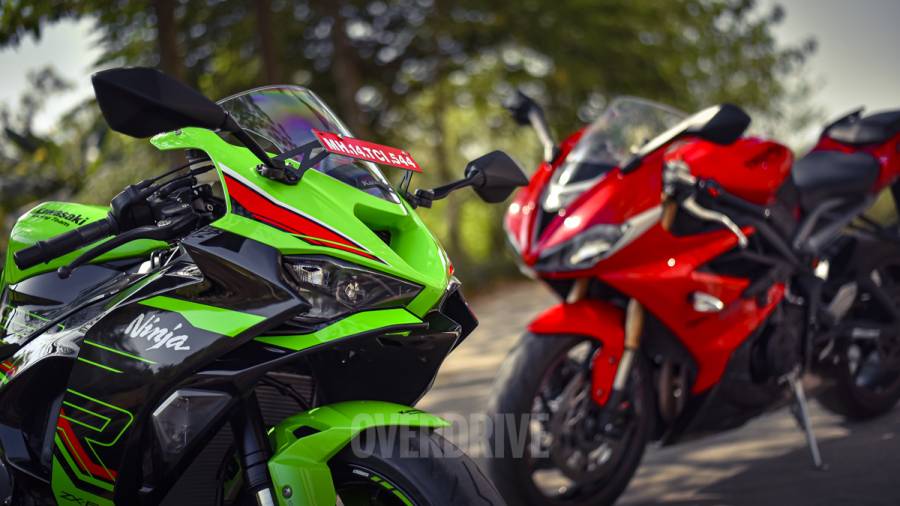
That said, the ZX6R provides a respectable performance. but lacks the outright grunt and character of the Daytona 675's triple. It offers a better low-range performance than the Daytona but the midrange and top end don't feel as enticing. The Daytona screams all the way to its redline in every gear while the performance of the Kwacker seems to taper off after 13,000rpm making the final 2,000rpm to the redline feel a bit hollow.
So while Kawasaki has made minor tweaks and enhancements to improve emissions compliance and fuel efficiency, enthusiasts may yearn for more substantial updates to keep pace with evolving industry standards.
Electronics and Technology
The evolution of electronics and technology represents a pivotal aspect of modern motorcycles. In my decade-old Triumph Daytona 675, electronic aids are relatively rudimentary. While the inclusion of ABS is appreciated, you won't find sophisticated traction control systems or rider modes commonly seen in newer models - heck even the Aprilia RS 457 gets them now! The positive way to look at it is that the simplicity ensures a pure, unadulterated and more engaging riding experience. You are immersing yourself in the joys of motorcycling without relying on electronic crutches.
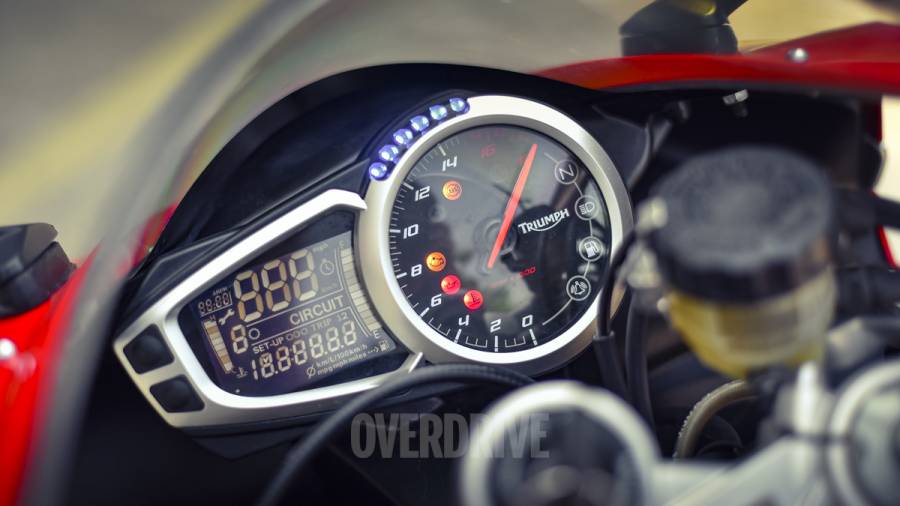
On the other hand, the 2024 Kawasaki ZX6R embraces the digital age but without completely letting go of the old-school charm. There is no IMU or fancy electronics - which should keep the purists happy while ticking all the basic safety tech you might need in our riding conditions. The vibrant TFT display will let you cycle between four riding modes that alter power output and traction control intervention. I think, but not complicating things with slide control, wheelie control etcetera, the ZX6R could appeal to a broad spectrum of riders seeking modern amenities and advanced technology without letting the electronics rob the riding fun.
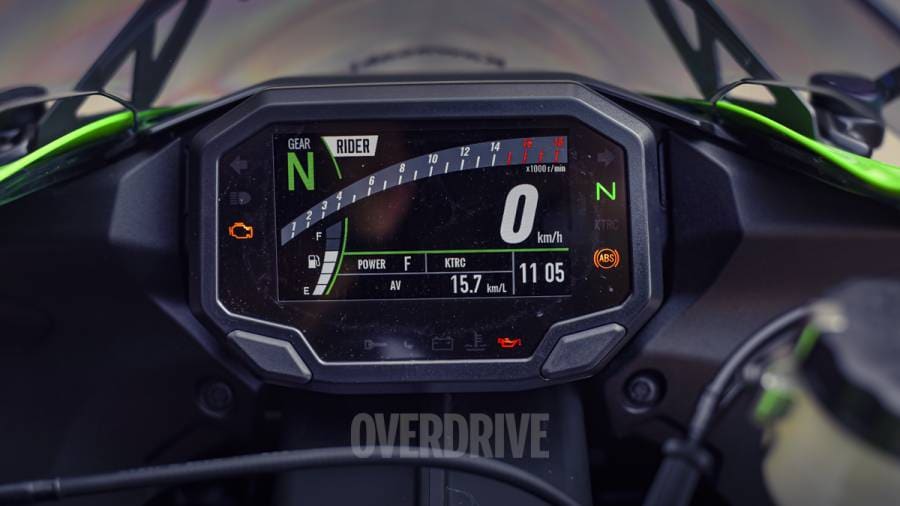
Suspension and Handling
When it comes to carving corners and attacking apexes, suspension and handling prowess play a crucial role. The Triumph Daytona refined this bit back then by offering two options - the standard bike with Kayaba suspension and an R model which set the bar high with its Öhlins suspension components and Brembo brakes. The suspension is fully adjustable on both models and allows riders to fine-tune it to their weight and riding preference. The Ohlins are arguably better for the track. But whether navigating twisty mountain roads or tearing up the racetrack, the Daytona 675 remains a benchmark for riding dynamics even today, offering precise feedback and predictable behaviour that inspires riders to push their limits.
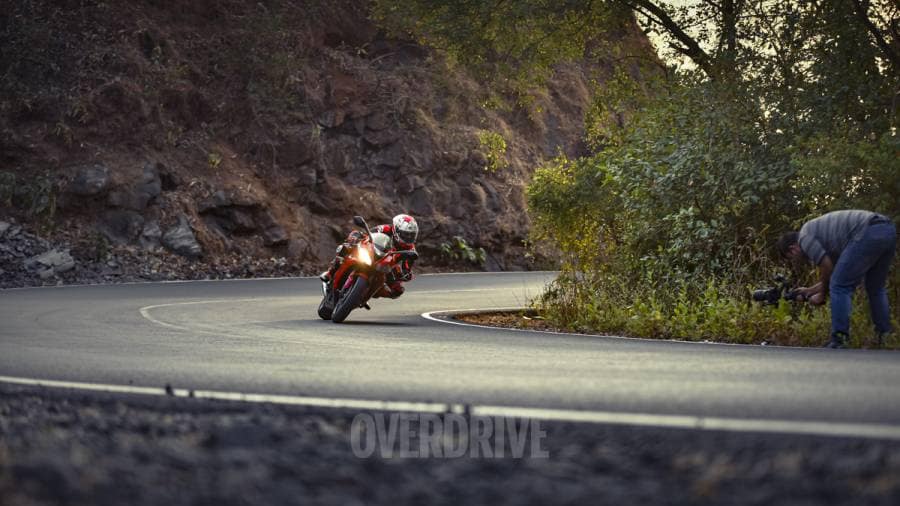
In comparison, the 2024 Kawasaki ZX6R showcases evolutionary rather than revolutionary improvements in suspension and handling. While its Showa suspension setup offers commendable adjustability and feedback, some riders may find its chassis dynamics lacking the finesse of the Daytona 675. However, with the addition of modern braking components and electronic aids, the ZX6R delivers a competent and predictable riding experience, albeit without the same level of refinement and precision as its counterpart. Riders seeking a balance between performance and comfort will appreciate the ZX6R's compliant suspension and stable handling characteristics, making it a versatile choice for both spirited rides and daily commutes.
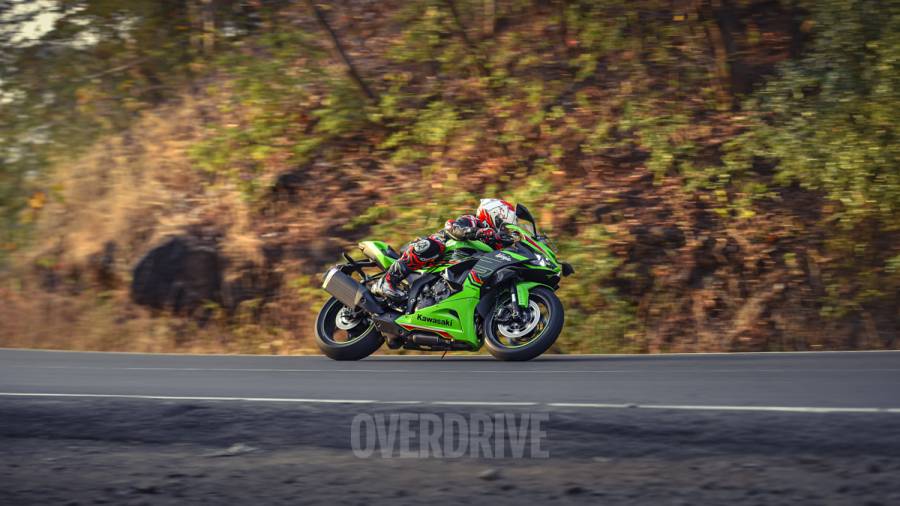
When you opt for a litre-class machine with over 200 horsepower, the intensity of the riding experience can be overwhelming. Handling such raw power demands a keen sense of control and physical stamina. This is where middleweight machines provide a welcome alternative. They aren't as demanding and even with lesser electronics they are relatively easy to tame. But the ZX6R lacks the nimbleness and ease of handling found in the Daytona. Despite its larger size between the legs, the ZX6R's rider triangle feels surprisingly cramped, even for someone of my height at 5 feet 8 inches. However, during cornering, the ZX6R's bulkier frame and tank pay dividends, providing a substantial anchor that offers a reassuring grip, enhancing stability and confidence through each turn.
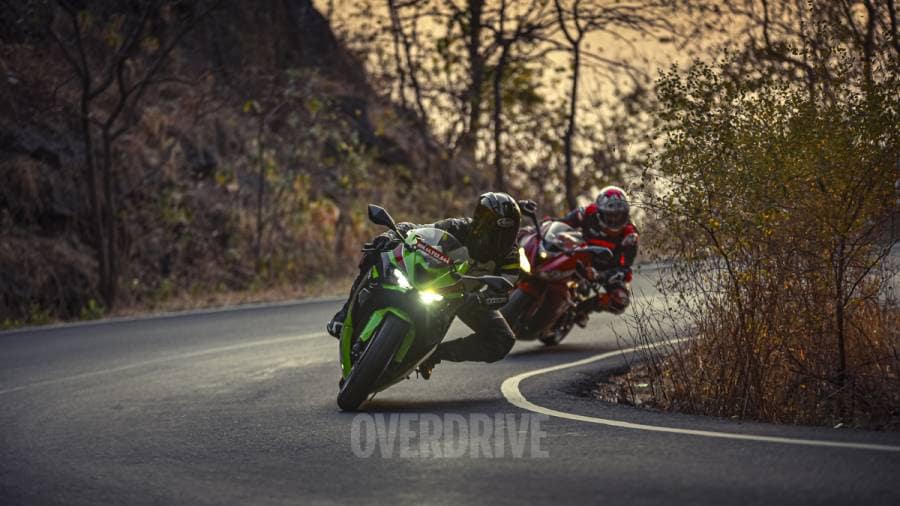
Verdict
While the Daytona 675 excels in raw character, agility, and rider engagement, the ZX6R shines with its advanced electronics, convenience features, and modern aesthetics. The bottom line is that the evolution between these two models feels only incremental. Nothing as revolutionary as we have witnessed in the litre-class genre. The ZX6R still feels simple for its time, the way the Daytona did back in the day. But there is beauty in that simplicity. It does the job of introducing riders to speed and improving their high-performance skills on the road and on the track. And that simplicity also shows in its price - making it an excellent value proposition just the way the Daytona was back in its day. So as far as I'm concerned, it doesn't matter how many options you have in the middleweight supersport genre or how much the segment has evolved - because the one that is available still ticks all the right boxes.
Starts Rs 10,99,000
1043cc
6-Speed
120.00
102.00
-NA-
